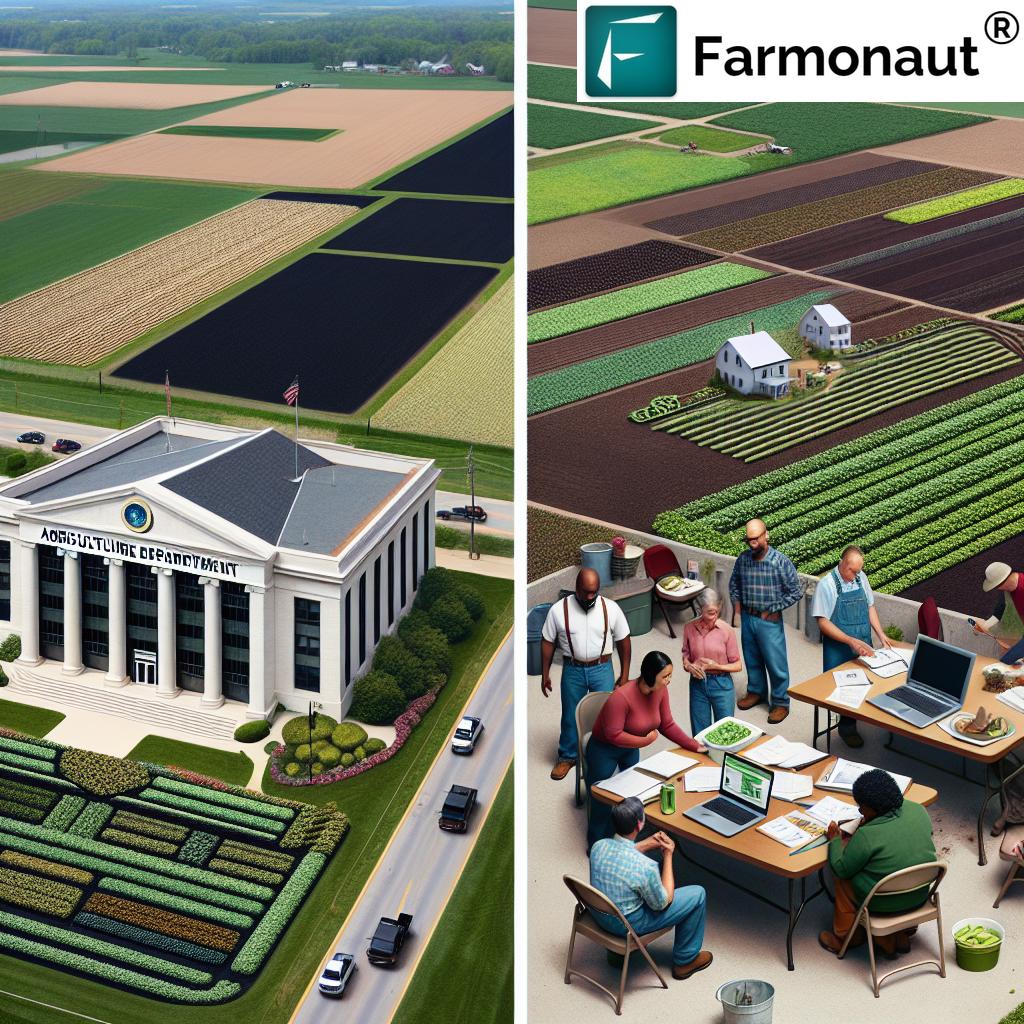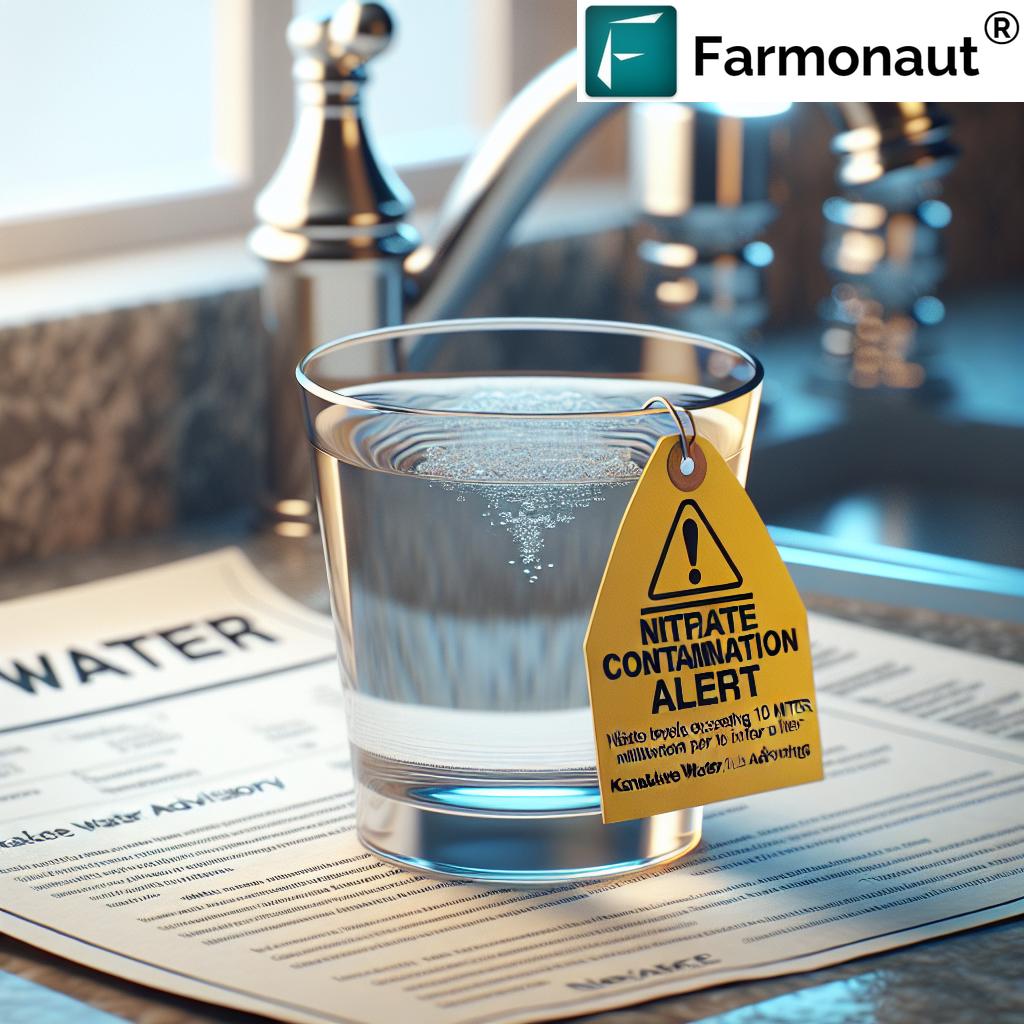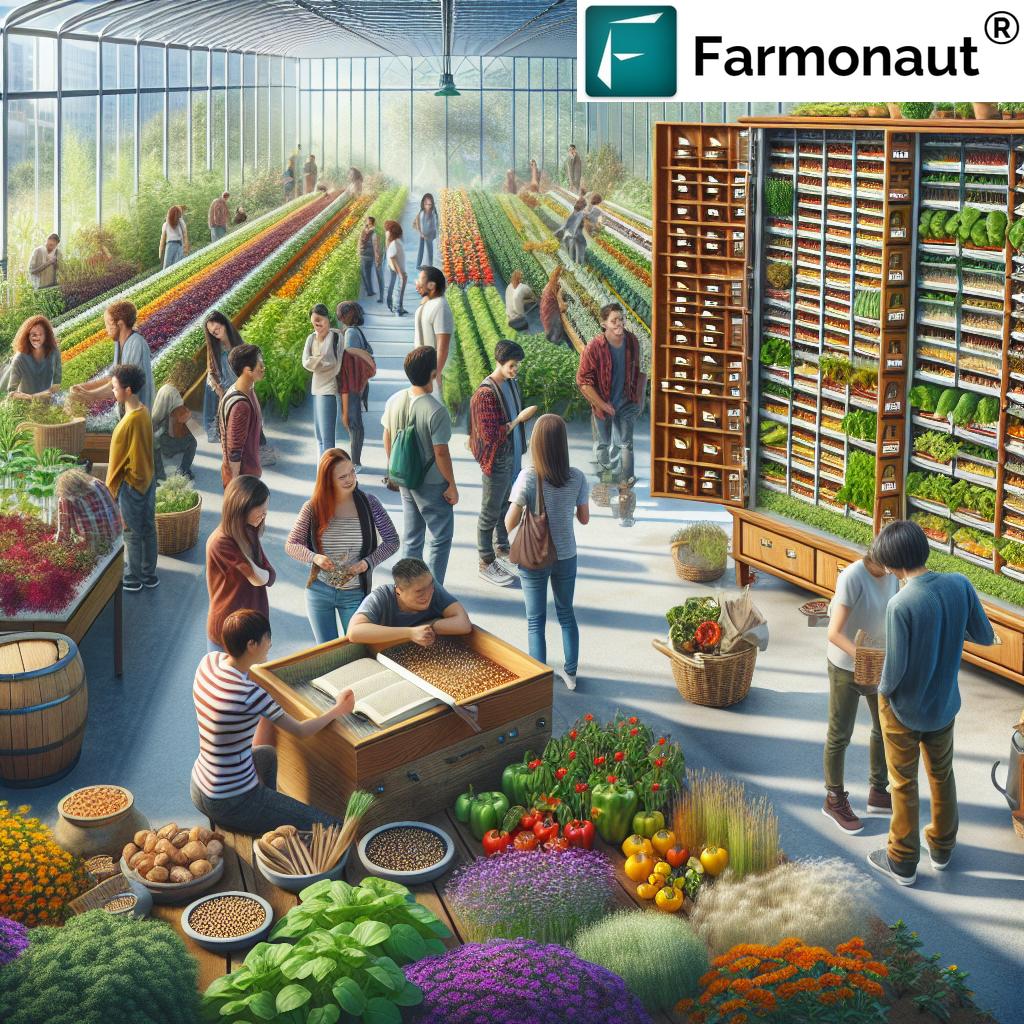Agricultural Land Management Metuchen, Linden, Clinton NJ: A 2025 Perspective
“Over 80% of farmland in Metuchen, Linden, and Clinton, NJ will adopt sustainable land management practices by 2025.”
Agricultural Land Management Metuchen, Linden, Clinton NJ: Why 2025 Matters
In the evolving landscape of New Jersey’s agricultural sector, agricultural land management in Metuchen, Linden, and Clinton, NJ stands at the heart of sustainability, food security, and rural vitality. As we approach 2025, towns like Metuchen, Linden, and Clinton are showcasing a remarkable shift toward advanced, sustainable, and community-engaged land management strategies. This blog post explores how these regions are addressing challenges ranging from urban encroachment and soil degradation to industrial influences and climate change—ultimately shaping a resilient future for agriculture in New Jersey.
Why focus on Metuchen, Linden, and Clinton in NJ? Because these areas embody the diversity of challenges and opportunities faced by farmers and policymakers across the state. The unique blend of urban, industrial, and rural dynamics in these towns demands tailored solutions, which offer crucial insights and best practices for sustainable land stewardship and conservation in 2025 and beyond.
Let’s explore how agricultural land management in Metuchen, Linden, and Clinton, NJ is transforming regional agriculture, empowering farmers, enhancing soil and water quality, and promoting environmental stewardship at the local and state level.
The Foundations of Agricultural Land Management in Metuchen, Linden, and Clinton NJ
Agricultural land management Metuchen NJ, agricultural land management Linden NJ, and agricultural land management Clinton NJ are not only local initiatives—they represent leading-edge responses to global sustainability goals. 2025 brings:
- Innovations in soil health and conservation: Leveraging technology for soil monitoring and regenerative practices.
- Strategic land use planning: Balancing economic growth with green space preservation.
- Community engagement: Connecting urban, suburban, and rural communities to support a localized food system and agricultural resilience.
In this context, we’ll examine the specific challenges, local innovations, and opportunities in each township, followed by regional collaboration and technology’s growing role—especially satellite-driven solutions provided by Farmonaut and advanced agricultural tools.
Metuchen, NJ: Urban Proximity, Precision Agriculture, and Sustainability
The Urban-Agricultural Balance
Metuchen, NJ—known primarily as a residential and commercial hub—sits at a unique junction between urban density and agricultural zones. The challenge here involves mitigating the effects of urban sprawl, which can:
- Fragment farmland and disrupt ecological zones
- Degrade soil quality through land conversion and pollution
- Pressure available water resources and increase fertilizer runoff into surrounding bodies
As agricultural land in Metuchen borders expanding suburbs and commercial districts, careful land management becomes essential to maintain productivity, quality, and environmental health.
Advanced Strategies & Solutions for 2025
In Metuchen, 2025 agricultural land management is defined by integrated land use planning and precision agriculture:
- Drone surveillance and satellite soil sensors: Allowing farmers to monitor crop health (NDVI), water stress, and soil composition in real time.
- Optimization of irrigation and fertilization: Data-driven systems help reduce overapplication, optimizing nutrient management and protecting local water bodies from runoff.
- Community-supported agriculture (CSA) initiatives: Local residents are encouraged to invest in and buy from nearby farms, fostering stewardship, food security, and eco-awareness.
- Nutrient management plans and green spaces: New measures prioritize minimizing excess fertilizer use and preserving “green belts” critical for wildlife and healthy soils.
Urban proximity in Metuchen makes sustainable land management both complex and rewarding, as local farmers and planners innovate to maintain agricultural productivity, biodiversity, and water quality while supporting economic development.
Example: To support carbon footprint reduction efforts in Metuchen, robust measurement tools are now available for growers. Farmonaut’s Carbon Footprinting tools provide satellite-powered carbon emission tracking and actionable data, directly supporting resource-efficient, climate-smart farming practices.
Linden, NJ: Managing Agricultural Land Amidst Industrial Influence
Industrial & Port Proximity: Challenges Facing Linden Agriculture
Linden, NJ is heavily shaped by its proximity to industrial facilities and port infrastructure. This presents distinct agricultural land management challenges:
- Potential soil and air contamination: Leading to increased need for rigorous soil testing and remediation measures.
- Disrupted water cycles and pollution risks: Requiring buffer zones and sustainable water management strategies.
- Pressure on local food systems and rural livelihoods: Due to industrial expansion and shifting economic priorities.
Farmers in Linden must address both immediate risks and long-term sustainability through adaptive management—increasing the health and productivity of agricultural zones while minimizing negative industrial impacts.
2025 Strategies: Remediation and Resilience
By 2025, Linden’s approach to agricultural land management features:
- Soil testing and phytoremediation techniques: Targeted plants are used to extract or neutralize contaminants, improving long-term soil health and crop safety.
- Cover cropping and crop rotation: Enhance soil structure, manage pests, and restore organic matter while diversifying farm incomes.
- Buffer zones and green corridors: Reduce fertilizer and chemical runoff into nearby bodies and act as a local “defense system” against industrial sprawl.
Extensive collaboration with environmental authorities ensures the monitoring and remediation of agricultural land is rigorous, with innovative solutions supporting both farming productivity and all-round environmental defense.
Linden, NJ thereby emerges as a new model for agricultural land management where industry and stewardship coexist, maintaining food security, local economic vitality, and sustainable resource use.
Tip: Traceability solutions (powered by blockchain) help verify the integrity and safe handling of food products from farm to market—boosting Linden’s reputation for safe, sustainable produce.
Clinton, NJ: Conservation, Technology, and Rural Excellence
Rural Strength, Conservation Ethos, and Cutting-Edge Management
Clinton, NJ maintains a rural character and features the largest continuous tracts of farmland in the region. As towns around it urbanize or industrialize, Clinton’s focus turns to land conservation, technological innovation, and environmental stewardship—ensuring the area’s agricultural legacy endures well into the future.
2025 agricultural land management Clinton NJ priorities include:
- Data-driven farming and GIS mapping: Farmers use Geographic Information System (GIS) mapping to analyze slope, identify erosion-prone areas, and design conservation strategies.
- Contour plowing and terracing: These measures control erosion, improve water retention, and ensure healthy, productive soils for generations.
- Agroforestry and biodiversity corridors: Integrating trees with crops and pastures, boosting carbon sequestration, shelter for wildlife, and multi-income streams from timber and non-timber products.
- Renewable energy deployment (solar-powered irrigation, etc.): Lowering energy costs while reducing the environmental footprint of farms.
Looking for scalable land management and plantation advisory services? Farmonaut’s Agro-Admin App makes large-scale land management smarter, using advanced mapping and satellite data to monitor health, plan interventions, and optimize farm operations—perfectly suited for Clinton’s diverse landscapes.
Through these efforts, Clinton, NJ not only conserves farmland but also drives economic development by promoting eco-tourism, sustainable timber, and innovative cropping systems.
“Soil health improvements in these NJ towns are projected to cut erosion rates by 30% through advanced management by 2025.”
Quick Tip: For comprehensive farmland defense and resource optimization, fleet and resource management tools streamline agricultural logistics, increasing operational efficiency and sustainability for farms in all regions.
Comparative Benefits Table: Sustainable Agricultural Land Management in Metuchen, Linden, Clinton NJ
| Practice | Estimated Soil Health Improvement (%) | Reduction in Chemical Usage (%) | Estimated Farmland Conserved (Acres) | Sustainability Benefit |
|---|---|---|---|---|
| Cover Cropping | 25–35 | 20–30 | 1500 (cumulative, all towns) | Reduces erosion, enhances biodiversity, improves organic matter |
| No-Till Farming | 30–40 | 35–45 | 1000 | Reduces soil compaction, retains moisture, lowers emissions |
| Crop Rotation | 20–30 | 25–35 | 1300 | Improves pest and disease management, strengthens soil structure |
| Buffer Zones | 15–20 | 10–20 | 800 | Protects water quality, reduces runoff, enhances wildlife habitat |
| Agroforestry | 40–50 | 35–50 | 1800 | Enhances carbon storage, diversifies farm income, increases resilience |
| Phytoremediation | 10–20 | 5–15 | 700 | Removes pollutants, restores contaminated soils |
Regional Collaboration and Policy Initiatives in Agricultural Land Management NJ
The success of agricultural land management in Metuchen, Linden, and Clinton relies not only on local farm ingenuity but also on regional collaboration and policy support. Key components of the 2025 policy landscape include:
- State-sponsored programs delivering grants for soil conservation, irrigation infrastructure, and farm sustainability upgrades
- Technical assistance from the New Jersey Department of Agriculture—supporting new technology adoption and environmental compliance
- Zoning laws that shield agricultural lands from suburban encroachment and development pressure
- Agricultural conservation easements and strategic land purchase—these help ensure that vital farmland areas remain protected for future generations
- Nonprofit and community-led initiatives—encouraging farm-to-table markets, nutrient management, and green infrastructure
Water management is also critical—modern drainage and irrigation systems improve farm productivity and minimize water waste, preserving this vital resource in the face of climate change and population growth.
Further reading: Interested in end-to-end blockchain traceability or satellite-verified crop insurance for your farming operation? Both provide enhanced access to loans, insurance, and buyer trust by using satellite and AI technologies to substantiate claims and secure the food system.
Farmonaut’s Role in Sustainable Agricultural Land Management: Satellite-Powered Insights in NJ
At Farmonaut, we are dedicated to transforming agricultural land management in Metuchen, Linden, Clinton, NJ, and across New Jersey through satellite-driven technology. Our mission is to make advanced data, monitoring, and insights accessible and affordable across all sectors of agriculture. Here’s how we help shape the landscape in 2025 and beyond:
How Farmonaut’s Platform Empowers Local Agricultural Land Management
-
Satellite-Based Crop Monitoring:
We use real-time AI-powered satellite imagery to assess vegetation health (NDVI), identify water stress, and quantify soil conditions—helpful for optimizing management practices, irrigation schedules, and ensuring healthy yields in Metuchen, Linden, and Clinton. -
Jeevn AI Advisory System:
Our AI provides tailored suggestions and weather-informed strategies for smarter, safer farming and resource planning—helping farmers respond swiftly to changing climate or soil health challenges. -
Blockchain Traceability:
By enabling field-to-market traceability, we enhance transparency, food safety, and consumer trust across supply chains. -
Environmental Impact Monitoring:
Our platform tracks carbon footprints and water usage, supporting efforts to achieve environmental stewardship and comply with evolving regulations. -
Resource Management & Fleet Monitoring:
We offer tools for resource allocation and logistics optimization—making large and small farms more efficient and cost-effective.
Our services are accessible via web and mobile apps, as well as easy-to-integrate APIs. For software developers and agri-businesses interested in integrating satellite, weather, or advisory data into their agri-systems, our API developer documentation provides everything needed to get started.
Benefits Farmonaut Brings to Agricultural Land Management in 2025
- Affordable satellite insights for all farm sizes and locations
- Actionable recommendations for enhancing soil health, biodiversity, and water use
- Transparency and risk reduction for financial access (loans/insurance)
- Compliance support for carbon, conservation, and land use standards
- Scalability to suit individual growers, large enterprises, and government agencies
Our approach fosters economic vitality, food security, and environmental quality—key priorities for land management and sustainable development in New Jersey.
Frequently Asked Questions (FAQ) on Agricultural Land Management Metuchen, Linden, Clinton NJ
1. What is agricultural land management, and why is it important in Metuchen, Linden, and Clinton, NJ in 2025?
Agricultural land management refers to the planning and application of practices that improve soil health, conserve farmland, support sustainable agriculture, and ensure food and economic security. In Metuchen, Linden, and Clinton, NJ, these strategies are vital for balancing urban, industrial, and rural needs—protecting farmland from encroachment, preventing soil and water degradation, and maintaining productive agricultural systems for the future.
2. How does technology aid in agricultural land management in these NJ regions?
Technology—including drones, sensors, and satellite imagery—provides precise, data-driven solutions. This includes real-time crop monitoring, nutrient management, targeted irrigation, and early identification of soil or environmental issues. Such tools support higher productivity, reduced input costs, and responsible stewardship of land and water.
3. What are the main challenges facing farmland in Metuchen, Linden, and Clinton?
- Urban sprawl and suburban encroachment (Metuchen)
- Industrial contamination and air quality issues (Linden)
- Soil erosion, water retention, and conservation of rural landscapes (Clinton)
- Climate change adaptation, maintaining biodiversity, and economic development pressures in all regions
4. Are there financial or technical resources for farmers wanting to implement sustainable practices?
Yes! Farmers in NJ can access grants, conservation easements, technical assistance, and affordable monitoring tools provided by organizations like Farmonaut, NJ Department of Agriculture, and various nonprofits. These support the adoption of practices like cover cropping, no-till farming, advanced irrigation, and ecological restoration.
5. How do buffer zones and green spaces impact agricultural and environmental outcomes?
Buffer zones—areas of vegetation around farmland—reduce runoff, protect water quality, enhance wildlife habitats, and defend productive land from urban/industrial pressures. In Metuchen, Linden, and Clinton, these measures are core to farmland conservation.
6. What role does Farmonaut play in supporting sustainable farming and land management?
Farmonaut provides satellite-based data, AI advisories, traceability, and resource monitoring tools to empower farmers, businesses, and government institutions. Our solutions enable smarter, more resilient, and sustainable agricultural operations across Metuchen, Linden, Clinton, and all of New Jersey.
Conclusion: The Future of Agricultural Land Management in Metuchen, Linden, and Clinton, NJ
Agricultural land management Metuchen NJ, agricultural land management Linden NJ, and agricultural land management Clinton NJ exemplify the commitment of New Jersey’s communities to future-proofing regional food systems, conserving soils and water, and fostering innovation across the agricultural sector. As towns increasingly embrace technology, research-driven methods, and collaborative policy frameworks, they create robust defenses against development pressures, industrial risks, and environmental degradation.
2025 signals a new era for agricultural land management in NJ—one where sustainability, stewardship, and economic vitality drive local and statewide prosperity. Through the adoption of precision technologies, regenerative practices, and inclusive policy, farmers and stakeholders ensure that Metuchen, Linden, and Clinton remain pillars of agricultural productivity and environmental health for the next generation.
Whether you are a farmer, policymaker, researcher, or community member, your actions and support for sustainable land management today are key to preserving New Jersey’s agricultural heritage and securing our collective future.















